Does Mulch Kill Weeds? Different Types & Steps
-
Codee Chessher
- Last updated:
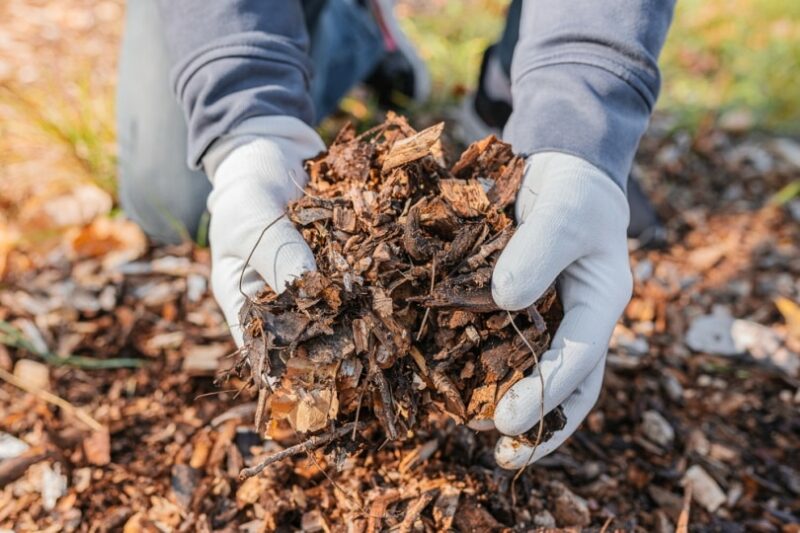
Mulch is one of the best ways to insulate plants, shrubs, and tree roots. It helps them regulate their temperature and water intake, but just as importantly, it helps prevent weeds. Even better, in many cases, mulch can kill off shallow weeds. Alone, it’s not that useful against combating all weeds, though.
To effectively use mulch against weeds, you should first weed the area by hand. Then add a thick layer of mulch, which will prevent weeds from reseeding or reemerging. Mulch prevents sunlight from reaching the weeds, effectively starving them of essential nutrients needed to grow.
How to Use Mulch to Kill Weeds
Mulch can’t kill large, established weeds by itself, which is where hand weeding and weed-killing products come in. After you remove the weeds, lay a 2–3-inch layer of mulch in the area you wish to prevent weeds.
Young plants, including weeds, can’t get enough sunlight to grow when blocked by mulch. Also, in cold temperatures, it can block their roots from warm soil. Their roots won’t be able to regulate their temperature or water intake, and the plant will wither and die. By covering young weeds in a thick layer of mulch, you can effectively smother them.
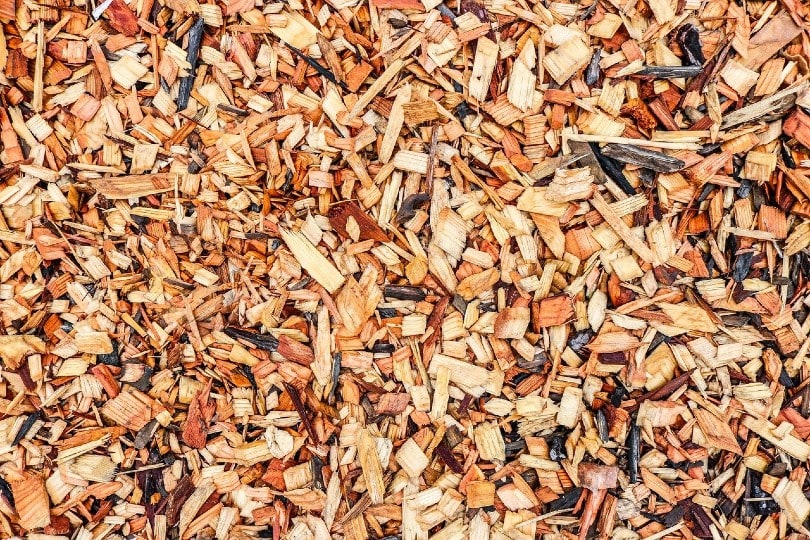
Other Steps for Killing Weeds
While mulch alone will help prevent new weeds from sprouting, it doesn’t guarantee that they won’t pop up again later. For best results, you should use a weed killer or solarization to more thoroughly de-weed the area. Don’t use a non-selective weed killer around your garden, though, because it will kill everything.
Instead, opt for a pre-emergent weed killer that’s specifically formulated to kill weed seeds and sprouts. These products won’t affect grown weeds, but they will prevent new ones from popping up for a time. To treat a mulched area, rake the mulch away and apply the product, then rake the mulch back over top.
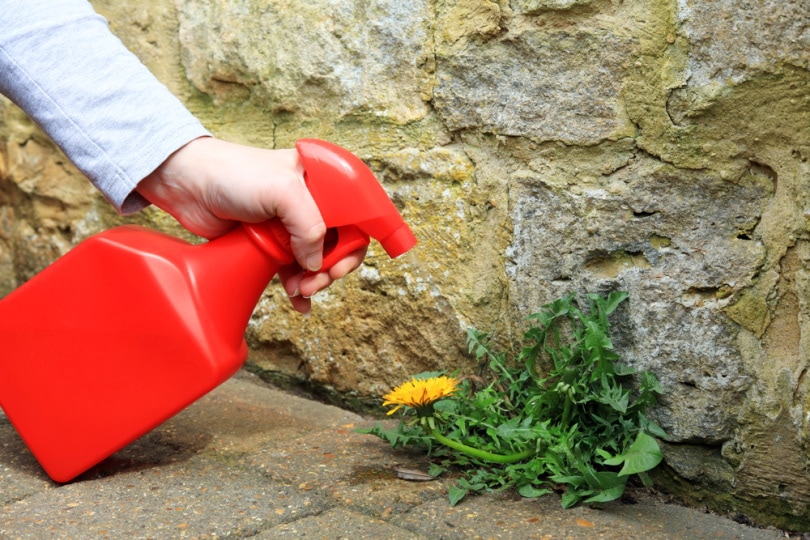
What Type of Mulch Should I Use for Weeds?
Various types of natural mulch are effective at smothering and preventing weeds, like compost, grass clippings, and bark mulch. Wood chips are the most common type of mulch, used to help protect the roots of plants by regulating their temperature and water intake.
Bark mulch will help retain moisture in the soil to help your garden plants while blocking sunlight from reaching would-be weeds. They typically decompose into the soil, returning essential nutrients like nitrogen that help plants grow.
There are several alternatives you can choose to help protect your garden and discourage weeds. Let’s check out what they are and what benefits they provide.
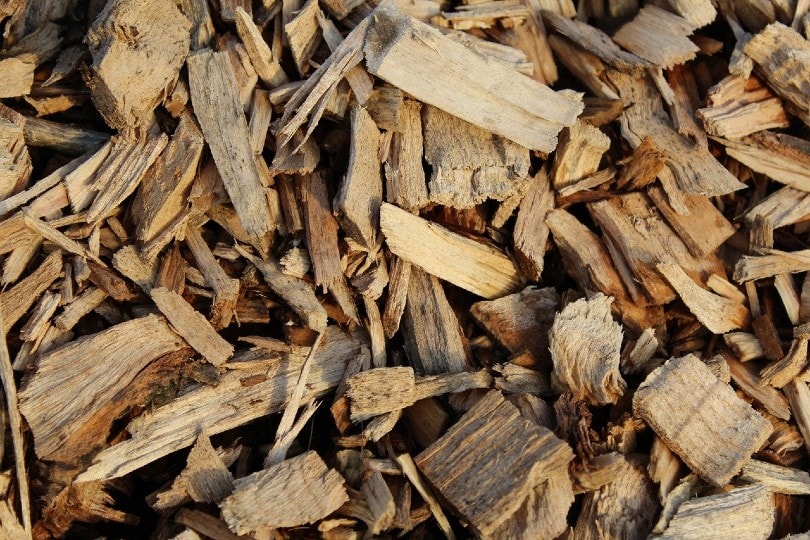
- Rubber Mulch: A long-lasting alternative to wood mulch that doesn’t return nutrients to the soil as it breaks down. The main downsides are that it’s flammable and may overheat the roots of any desirable plants in the area.
- Grass Clippings, Hay, Straw, and Pine Needles: Organic mulch alternatives that decompose into the soil and keep roots cool while preventing sunlight from reaching weed seedlings.
- Landscaping Fabric Sheets: Made of special woven or plastic material with tiny perforations that allow water through while preventing weeds from sprouting up.
When Should I Mulch?
To mulch a garden, we recommend starting after sprouts appear. Place a generous layer of mulch around the garden bed base after watering, carefully spreading it so that no sunlight reaches the soil underneath. If you miss an area, it’s more likely that weeds will appear there.
Mulching provides immediate benefits, like helping keep the soil cool in the summer and warm in the winter. Plus, it helps retain valuable moisture in the soil for your plants’ roots to suck up.
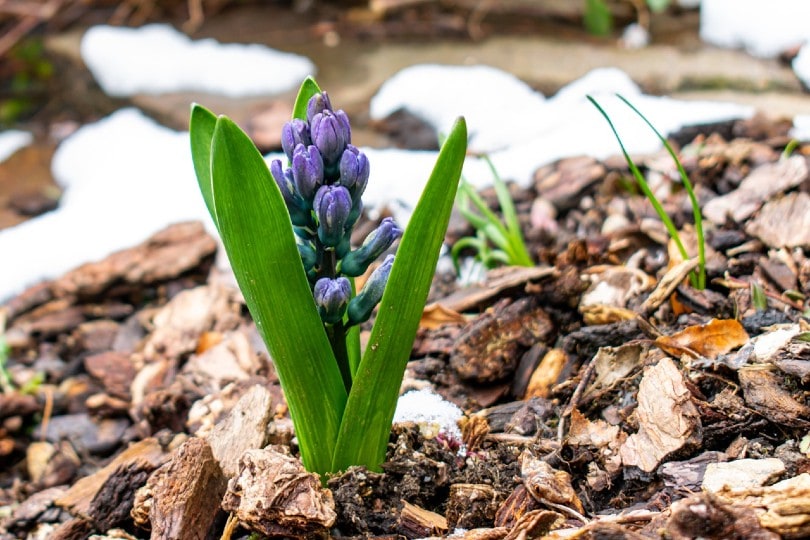
Conclusion
Mulch is an invaluable gardening tool that can sometimes be used to smother weeds, but it’s most effective when combined with hand weeding and weed killers. Apply mulch to protect your plants while preventing pesky weeds from popping up.
Featured Image Credit: larisa Stefanjuk, Shutterstock
Contents
